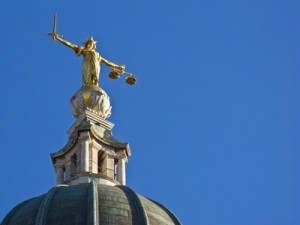International - Written by Barry & Richard on Monday, July 23, 2018 2:58 - 0 Comments
UK Court rules a suspect in a criminal investigation has reasonable expectation it will be kept private
 A UK court has ruled that the reporting by the BBC of a police investigation (which was later closed without prosecution) into Cliff Richard and televised search of his home using a helicopter flying above it violated the right to privacy flowing from Article 8 of the European Convention on Human Rights.
A UK court has ruled that the reporting by the BBC of a police investigation (which was later closed without prosecution) into Cliff Richard and televised search of his home using a helicopter flying above it violated the right to privacy flowing from Article 8 of the European Convention on Human Rights.
While the judgment does not mean that that right to privacy in criminal investigation can never be displaced (and there will be balancing factors to consider in individual cases) the result is welcome news to anyone finding themselves under Police Investigation. As the judge in the case observed:
“As a general rule it is understandable and justifiable (and reasonable) that a suspect would not wish others to know of the investigation because of the stigma attached. It is, as a general rule, not necessary for anyone outside the investigating force to know, and the consequences of wider knowledge have been made apparent in many cases (see above). If the presumption of innocence were perfectly understood and given effect to, and if the general public was universally capable of adopting a completely open- and broad-minded view of the fact of an investigation so that there was no risk of taint either during the investigation or afterwards (assuming no charge) then the position might be different. But neither of those things is true. The fact of an investigation, as a general rule, will of itself carry some stigma, no matter how often one says it should not.”
The BBC which vigorously defended the case said after judgment was handed down:
“Today’s judgement is very significant.
The judge found it was not merely the BBC’s use of helicopter pictures which breached Sir Cliff’s right to privacy. The simple naming of Sir Cliff as a suspect in the police investigation amounted to a breach of his privacy.
It means, going forward, people who are suspects in police investigations, save in exceptional circumstances, are entitled to reasonably expect the matter is kept private and not covered by the media.
That is why the BBC is broadening this out and saying, in effect, this is a dark day for news reporting.
As the judge in this case observed, it is self-evident that the fact of being under criminal investigation even if the investigation is closed and no prosecution ever brought carries with it a reputational taint and for individuals that taint can last a lifetime.
This judgment is a welcome protection and consistent with the fundamental presumption of innocence.


